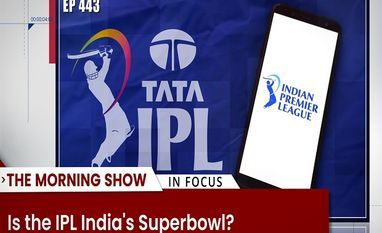Is the IPL India's Superbowl? Who protects the data you share while shopping? Do EMs stand to gain with a higher US debt ceiling? What is Neuralink? Answers here
It had hit a boundary on the very first ball. The Indian Premier League (IPL) became the country’s first unicorn in 2008 -- the year it was formed. And in its 15th year, just before the beginning of this year’s season, it became a decacorn, with its business value crossing the $10 billion mark. IPL has indeed brought unprecedented windfall to cricket. Its huge popularity has brought lucrative media and sponsorship deals over the years. So in today’s first story we explore if the IPL has become what Super Bowl is in the USA?
Did unwanted messages irk you while you were enjoying the nail- biting IPL match? And do you also get annoying calls? Then you are not the only one who is complaining about it. An increased number of people are reporting about such unwanted calls and messages. And the government is working to address it. Last week, it asked retailers not to insist on phone numbers of customers. So what are the regulations around sharing of phone numbers? Which authority monitors it? And finally, how will the upcoming Digital Personal Data Protection Bill protect your data?
Talking about data, Meta was slapped with a record $1.3 billion privacy fine last week. The reason? It was accused of transferring data to the US agencies. Moving on, the US leaders reached a tentative deal to raise the government’s 31.4 trillion dollar debt ceiling for two years. This measure brought a relief rally in equity markets across the globe on Monday, May 29. Going ahead, will this uptrend sustain or fizzle out soon? Moreover, will the expanded US debt limit make emerging markets a favourable bet?
It is not just lifting of the debt ceiling. The US took another big decision last week which may also have far reaching consequences. The country’s Food and Drug Administration finally gave a nod to Elon Musk’s brain-implant startup Neuralink to go ahead with the first human clinical study. The company plans to use its microchips to treat conditions such as paralysis. Listen to this episode of the podcast for more.
)